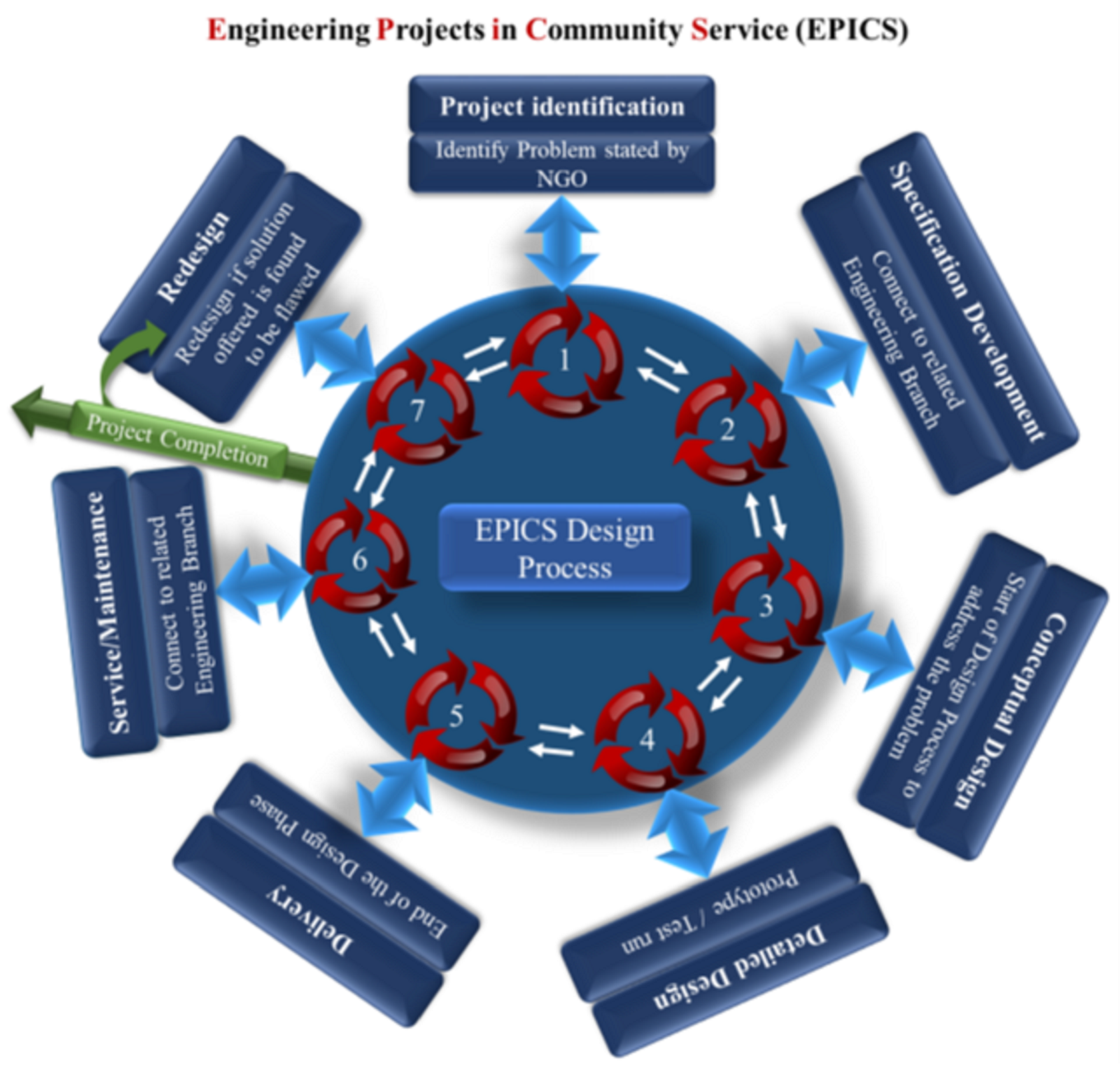The EPICS design process is a series of steps that designers follow to solve problems and create products. There are many versions of design processes, but most versions follow a similar set of steps: Define the problem, set the specifications, propose conceptual solutions, choose the best solution, develop the solution into sufficient detail for fabrication, and finally build the solution. One of the key differences is that some of the design processes focus significantly more on the people involved in the design. These have been referred to as “human-centered” or “user-centered” design processes. The EPICS Design Process model is “human-centered” and will be used in the course to demonstrate and guide you through your project.
The EPICS Design Process model is not just a recipe for creating products or simply an exercise that you need to complete. The design process is the method through which the designer combines their technical knowledge, design experience, and research to develop a quality product. The success of your project depends on how well you complete each phase. The work of each phase will use the knowledge gained in the previous phases. While many useful products can be made without using a formal process, following the steps of a design process will maximize the designers’ probability of producing a successful and useful product.
As the team moves through the phases, sometimes you gain new knowledge about the requirements, constraints, users, context, usability, and/or capabilities of technologies being used that make it necessary to iterate or go back to a previous phase and complete it again. This is entirely normal, and students should not be discouraged. The design process is never linear and includes many iterations to arrive at a useful solution. Throughout these phases and iterations, the student designer should always engage their partners, instructors, and community users to ensure that they are working toward a useful final deliverable.
The EPICS Design Process consists of the following phases:

What the student gains from an EPICS Project experience
If you wish to partner with EPICS at NMIMS, Kindly fill the form below
NGO/ Startup/Corporate : Click Here
Assistant Professor
Assistant Professor